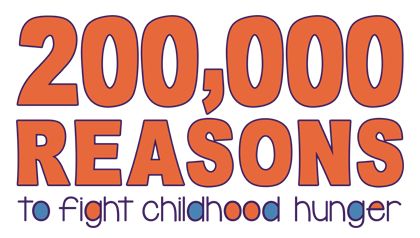Ministry With: 200,000 Reasons
The Arkansas Conference embarked on 6-year project to end childhood hunger. This ministry has thrived because of the relationships built with children and families.

Relationship-based ministry can happen in many places and many ways, from local congregations to large coordinated efforts.
In 2014, the Arkansas Conference felt called to make a difference in the lives of hungry children in their communities. Building a conference-wide strategy to tackle a large injustice with diverse root causes could have been a complicated task. But the leadership of 200,000 Reasons focused on an approach that would benefit every community: building relationships.
We talked to Mary Lewis Dassinger, Program Coordinator for 200,000 Reasons, to learn more.
Tell us about the ministry
200,000 Reasons to fight childhood hunger is an initiative of the Arkansas Conference through which we work to have 100 percent of Arkansas United Methodist Churches to significantly reduce childhood hunger through feeding ministries, public witness, and education for long-term stability.
Bishop Gary Mueller and other clergy leaders were seeking to provide a common mission for the conference, one that could make an impact on the state and in our churches. In their explorations, they learned that there are too many children who go hungry in our state—approximately 200,000 in 2014. Hunger touches every community, but so does the United Methodist Church. There is at least one local congregation in every county. That, and the right tools and resources, can (and does) make a difference in the lives of families that face food insecurity.
What dream is the ministry pursuing?
Our primary goal is to reduce the number of children who face food insecurity in Arkansas. We are just one of several organizations who are working to alleviate food insecurity. Through everyone’s efforts, the number of children has been reduced to 168,000 children as reported for 2016.
And yet, this initiative has allowed us as churches to go deeper. It has been an energizing force for vitality. For some, the feeding ministries are a new way to put their faith in action, to answer God’s call to serve. For others, it has been a powerful way to connect to the community—to let their neighbors know they are there, that they care, and want to be a part of their lives. Some churches have grown in membership because of the relationships they have made with families in need.
Is there a moment or memory that stands out for you?
The staff for 200,000 Reasons work with local churches to establish or expand ministries to children and their families. As churches report what they are doing, these are some moments that stand out:
The Sheridan Ministerial Alliance led by a United Methodist lay person plans to serve 10,000 meals over the summer in 2018. A youth group of 6 established a mobile food pantry for low income housing residents in a rural area. For their neighbors, this is the only way they have enough food at the end of the month.
Dover United Methodist Church was a small congregation of 20 when they expanded their ministry to deliver food to students over the summer. They confirmed or baptized 15 youth a year later -youth they met during those deliveries.
What have your neighbors (those utilizing services) taught you in doing this work?
The churches we work with have taught us creativity and compassion can build powerful ministries, even in the smallest congregations. Stories from our churches have taught us that many whom they feed struggle to make ends meet despite having a working family member. Often the food or meal that our churches offer is the only way some families have enough food for the entire month.
What challenges have you encountered, and how have you adapted?
Churches take time to develop a ministry, and in order to be effective they need the freedom to develop what works within their context. In addition, awareness of hunger in their community and the dynamics of generational poverty are difficult for some to accept. Education and discussion are necessary to create compassionate ministries that preserve human dignity. For example, food pantries that allow neighbors to “shop” for what their family likes is a powerful way to be in ministry with someone.
What advice would you give to others who are working to be in ministry with?
Begin by asking how you can get to know your neighbors and how can you be in partnership with those organizations with a shared mission. Second, look to fill the gaps where services are not being provided rather than recreating opportunities that already exist.
How can people contact you if they are inspired by your ministry?
Email Program Coordinator Mary Lewis Dassinger.